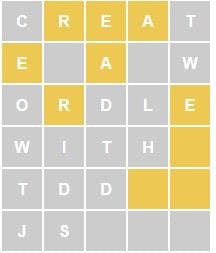1,405 reads
Creating a Wordle with TDD in Javascript
by
September 14th, 2022
Audio Presented by

I’m a sr software engineer specialized in Clean Code, Design and TDD Book "Clean Code Cookbook" 500+ articles written
Story's Credibility



About Author
I’m a sr software engineer specialized in Clean Code, Design and TDD Book "Clean Code Cookbook" 500+ articles written
